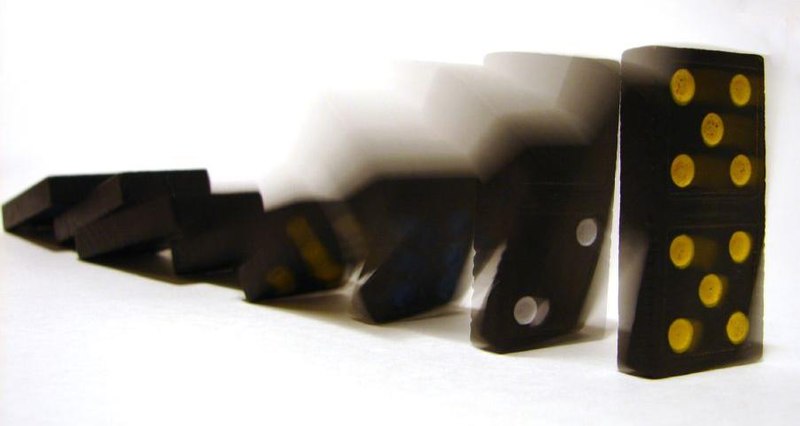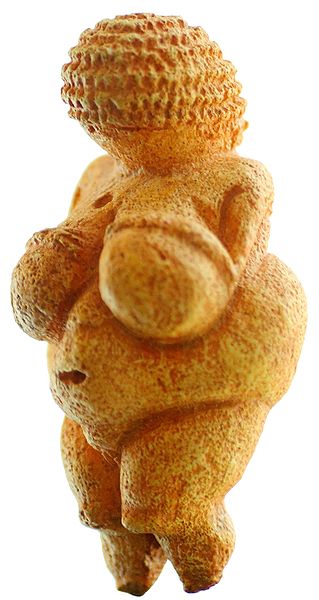
Change is an ever present element of life. It is always happening. Change is the passing from one state to the other. Without change, we would all still be cavemen living in caves the exact same way as our ancestors. Whether or not change is a good or bad thing depends on the situation. Change for the better is always good, but whether or not it is for the better depends on a person’s opinion. The thing about that is everyone has an opinion. Although one person may think a particular change is good, there will always be another person who thinks just the opposite. Change is all over the place; the most recent and most famous example of change was when the current president, Obama ran for election. His main points were on or about change. This example also shows that everyone has an opinion, many liked the change he spoke of and many did not. Everyone has their own opinion, but the thing to figure out is when change can be good and when it can be bad.
Change is constant and pretty hard to avoid. You are changing as you read this sentence. Getting older causes your mind, your thought process, and your body to change. What makes us humans today differ from our ancestors of over a million years ago? The answer is simply change. The gradual development of living things, and even things not living, causes new ideas to form almost constantly.
Okay, so why does change take place? Time passes, and as this comes about it is just natural for mankind, and nature, and everything to advance. Think of watching a movie. The movie is at a part where they are showing time passing by. As this happens you can see the sun go down, the clouds move, grass growing, and people or animals coming and going. Since time is always passing, change is always happening. For some when they think of change the first thing that pops into their head may be evolution. Evolution is the theory of development from previous forms. People, animals, and plants have developed into more advanced organism from their ancestors. Why? Organisms themselves have changed so they can adapt to their ever changing surroundings. Our ancestors, the Paleolithic people of the Stone Age were no strangers to change. When they discovered how to make stone tools they’re lives were revolutionized. The discovery of the stone tools is one of the main reasons mankind is where it is today. As the people evolved and grew because of their discoveries, so did their way of life in general. Change is something that just happens, and although they did not know this at the time most have realized that today.
Change transpires because organisms were created with the marvelous ability to adapt to their surroundings. This ability helps living things to stay alive and survive for as long as we have. An example of a living thing changing itself to survive is a simple plant. Plants get their energy through photosynthesis. One of the things that plants need for photosynthesis to occur is water. The thing with that is some plants live in dry climates where they lose a lot of water. These plants have adapted to their surroundings over time to survive. They found alternative ways to get and keep water by closing of pores, called stomata, which let sometimes release water. The Harappan civilization that was very successful and way ahead of its time had a sewage system before Thomas Crapper invented the toilet. Even though after a certain point in time archaeologists can find absolutely no information on them, they were very far ahead of their time because they saw something that needed to change.
There are many things that can influence whether or not a person likes change. The fact is people and their personalities vary. A person who is old fashioned may not be a big fan of change. One who likes things the way they are may not like change. Many people who suffer from OCD, Obsessive-Compulsive Disorder, do not like small changes in their lives. Another thing that influences whether or not someone likes change is the change that is occurring. As stated before, a more current topic on change would be the 2008 race for President. The theme of Barack Obama’s campaign was change. One of the main reasons he won the election was because the majority of Americans wanted change for America. Sometimes the case for whether or not change will come about is based on someone’s opinion of if they like that change or not.
Another thing that influences change is the circumstances which surround it. The change of reliance that people have on different types of technology nowadays can be looked at as good or bad. This change is looked upon by some as good because computer equal information. Others look at it as bad because just because people have the information, does not mean they use it for that. Also the health risks that come with computers, television, mp3s or iPods, and cell phones. None of these devices are good for the eyes and ear phones have been rumored to cause cancer. When looking at a change you can always argue the good or bad.
The good side of change is that without it, we would not be where we are today, the seasons and weather would not change, people would not grow, and nothing at all would happen. Change keeps life interesting. An example of a good change is the discovery of different uses for water. Our predecessors figured out that water can be used to travel. When they discovered the practice of domestication of crops, they came up with the idea to irrigate crops. Their ideas spread because of the traveling that was happening across the land and water. Without that change or development, many of the countries that exist today would not be here.
With every single thing, occurrence, or phenomena there will always be a good and bad side. The bad side of change most of the time, is that it makes people lazy. Since a lot of changes in history have just made life easier mankind has just become a little bit more indolent.
So, what do you think? Is change a good or bad thing? Change is neither good nor bad because change is a vast subject. When trying to answer the question, “Is change good or bad?” you have to look at how the change influences people, places, and things around it.
Citation :
Organizing America. 29 Jan 2010.
Shantee, Renee. "Our PreHistory - Paleolithic People of the Stone Age." Associated Content(2007): n. pag. Web. 29 Jan 2010.
Alcamo, Edward I, Katy Z. Allen, David M. Armstrong, Barry Bogin, Curtis Chubb, Linda Culp, Cara J. Cunningham, William J. Ehmann, Mark R. Feil, David R. Hershey, Mitchell Leslie, Karel F. Liem, Thomas Manerchia, Alyson Mike, Patricia Mokry, C. Ford Morishita, Patricia Morrel, William Thwaites, Salvatore Tocci, Albert C. Wartski, Lynn Marrie Wartski. Modern Biology. Austin: Holt, Rinehart, and Winston, 2002.
"Human Evolution." commons wikimedia. Web. 29 Jan 2010.



